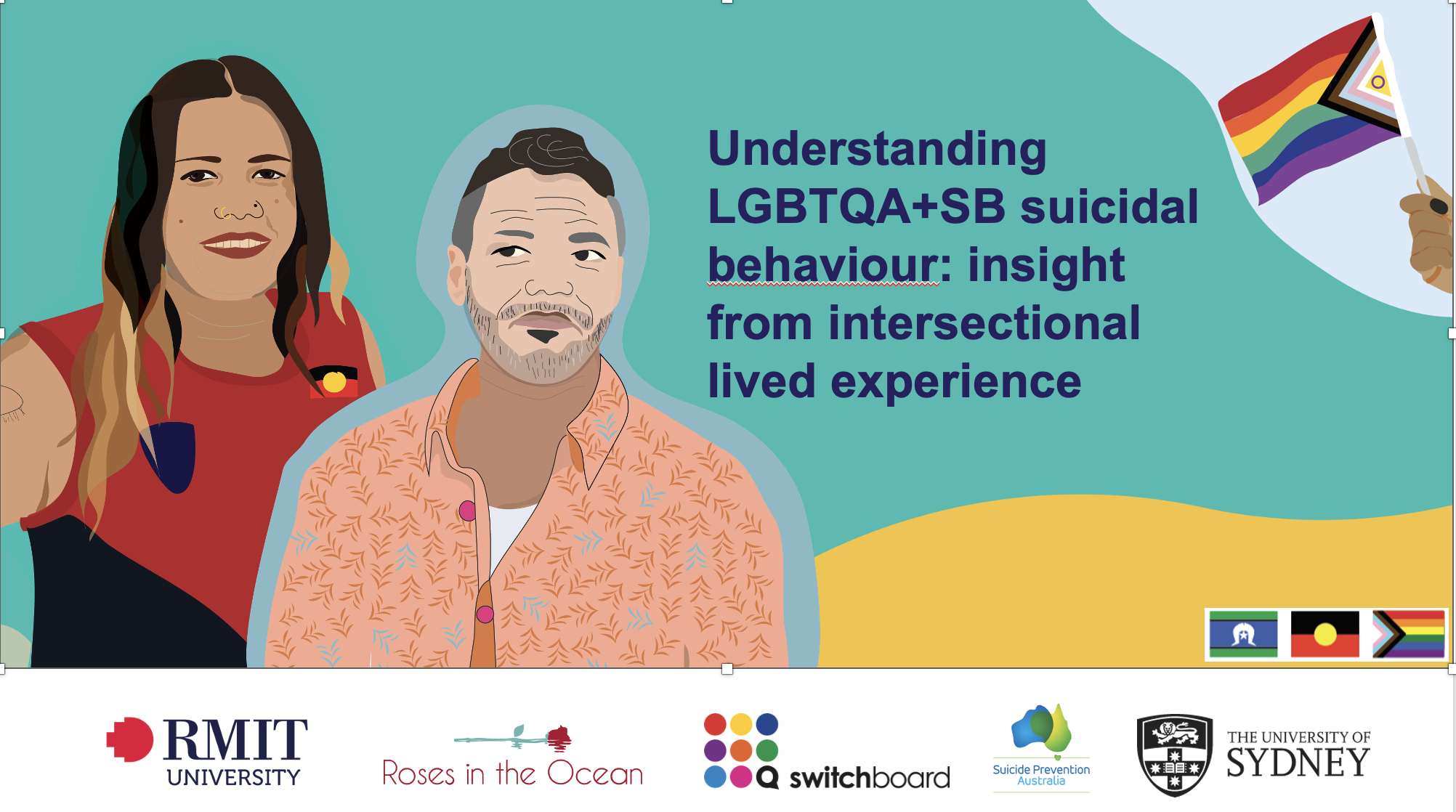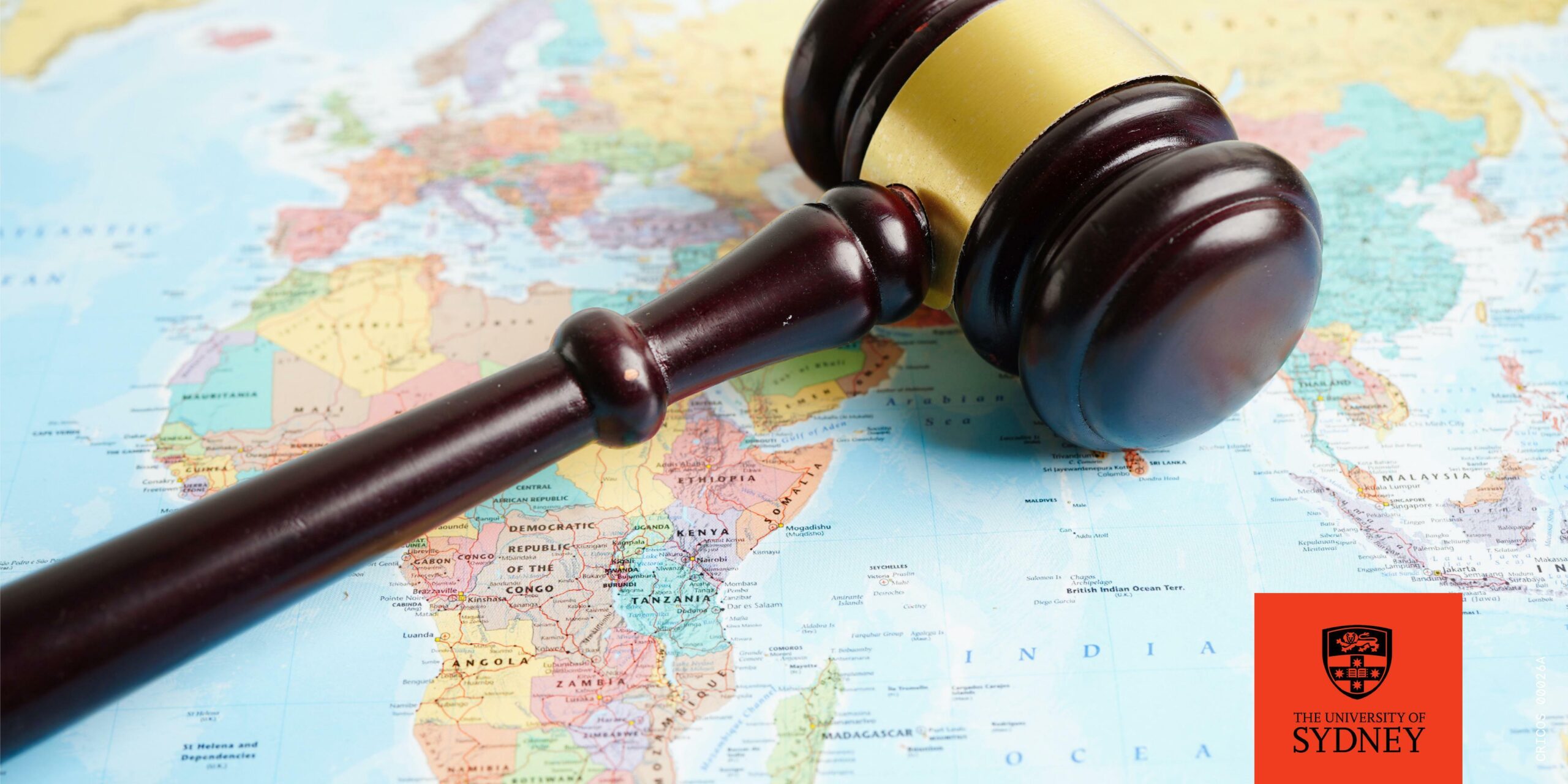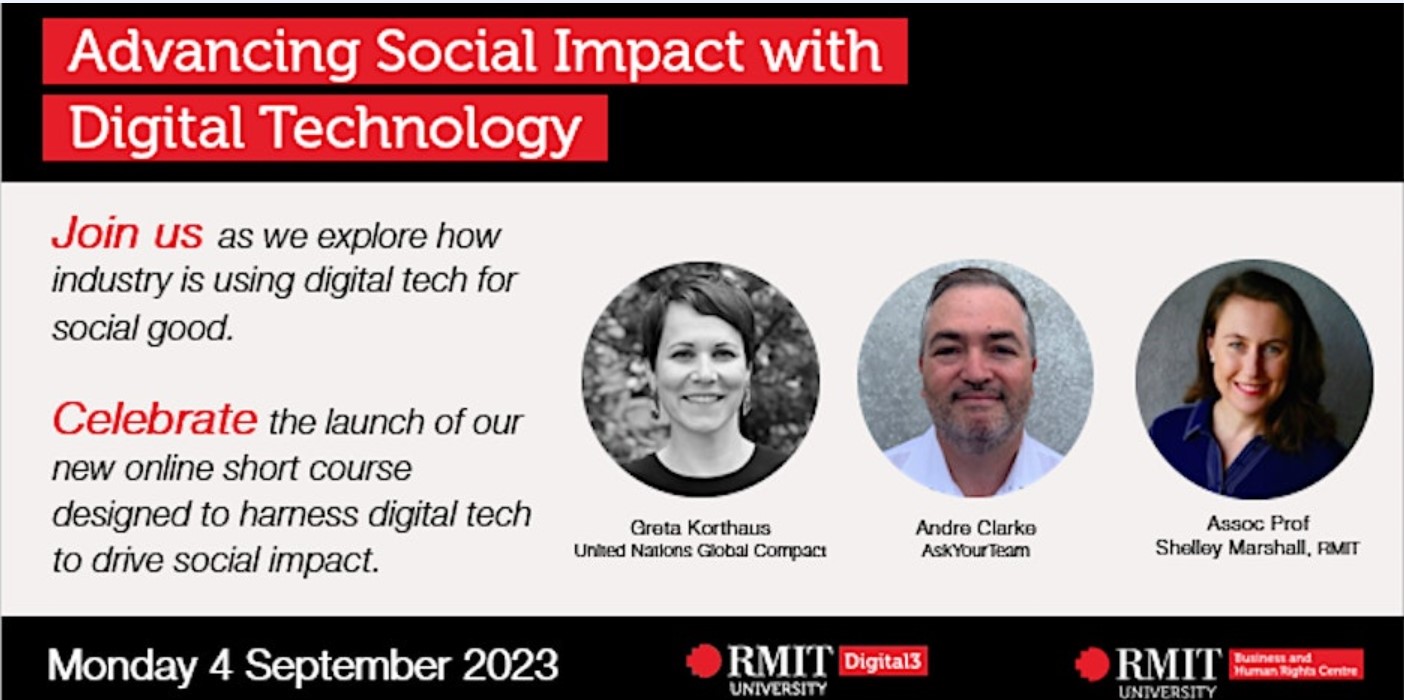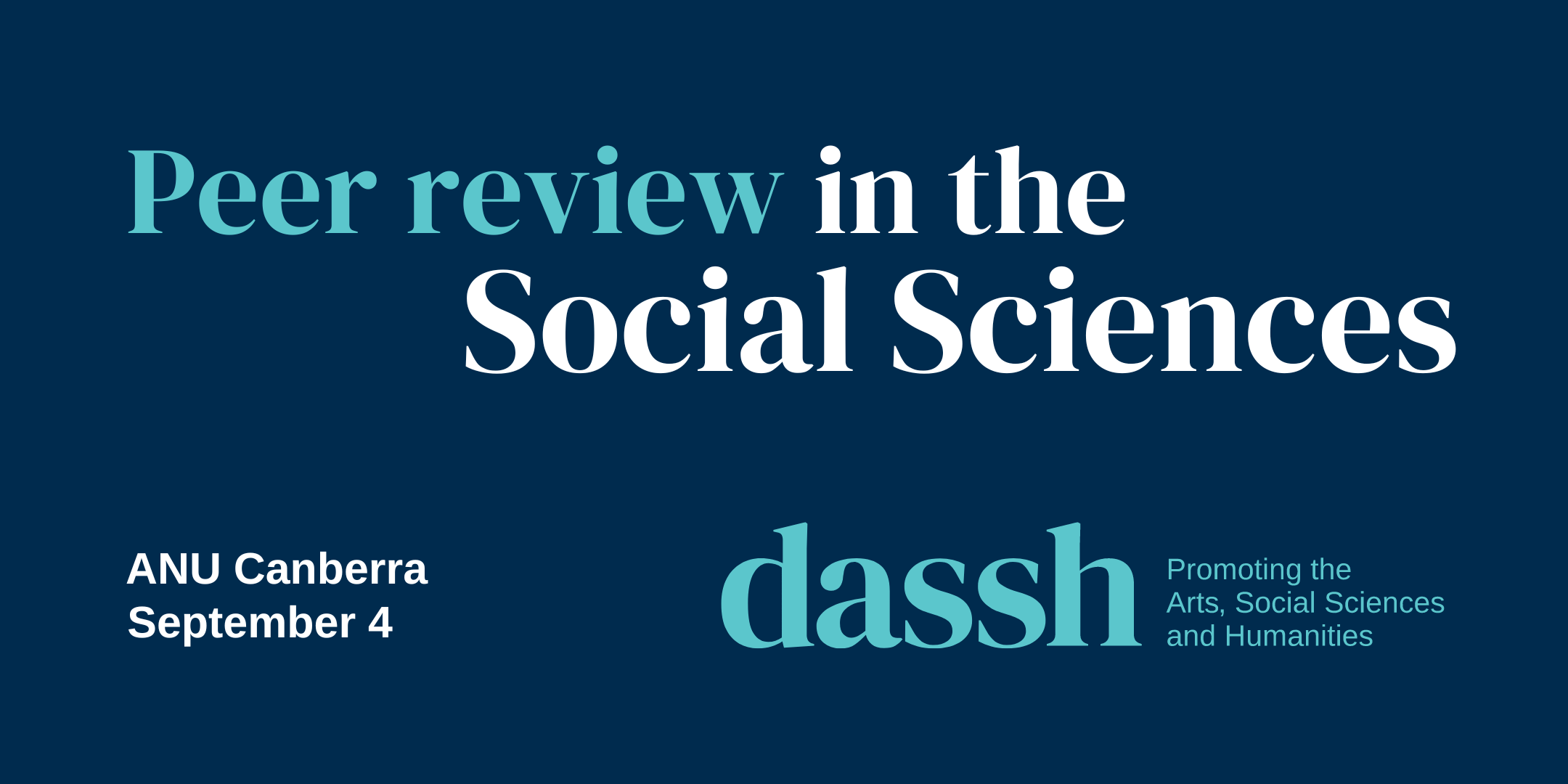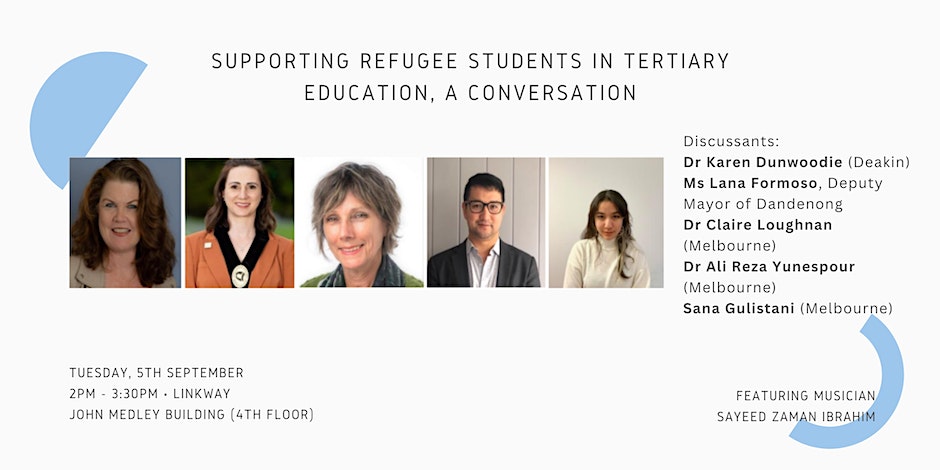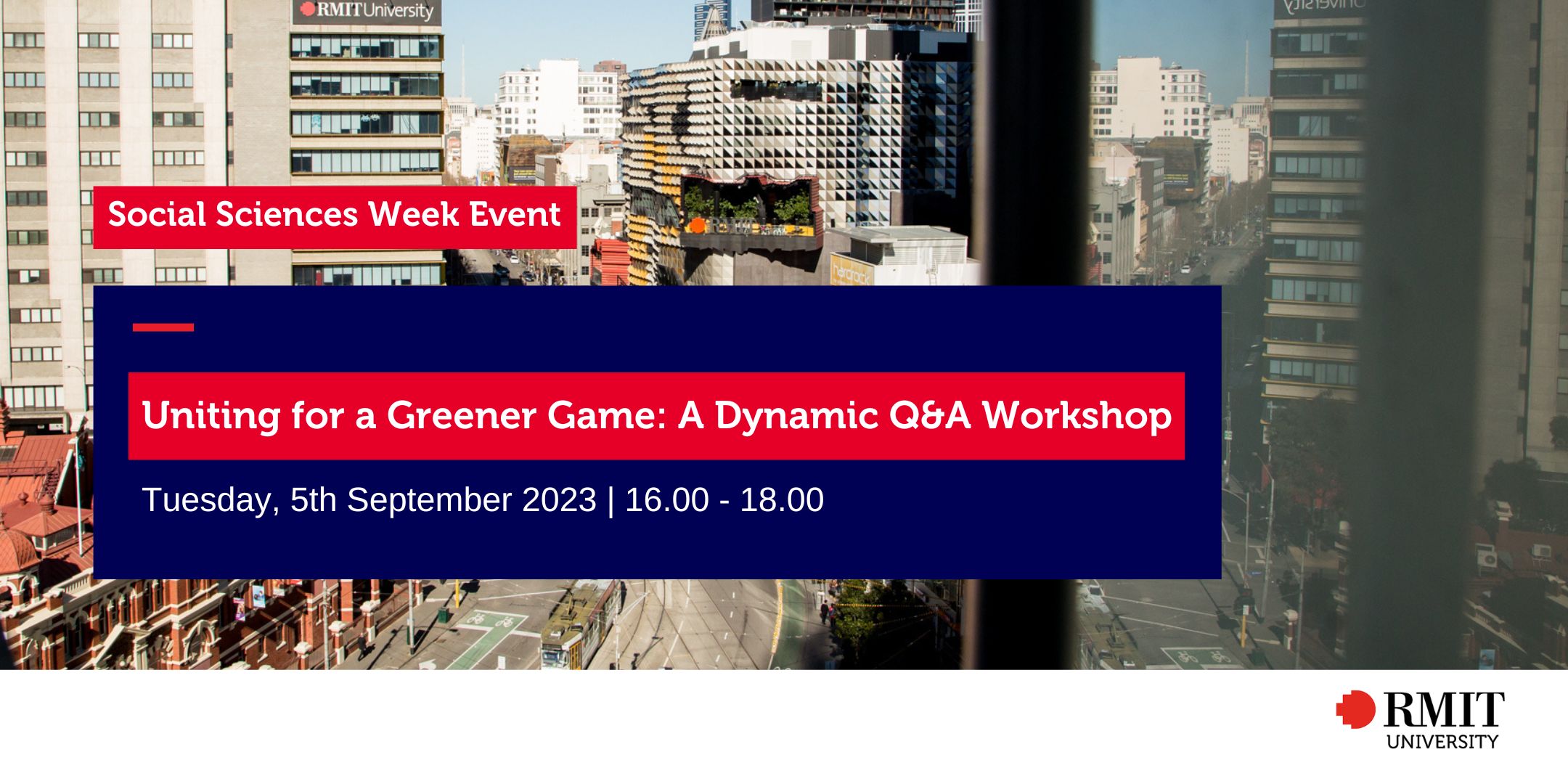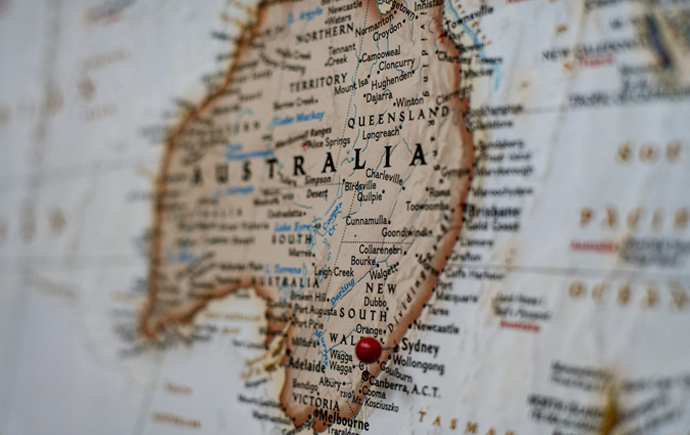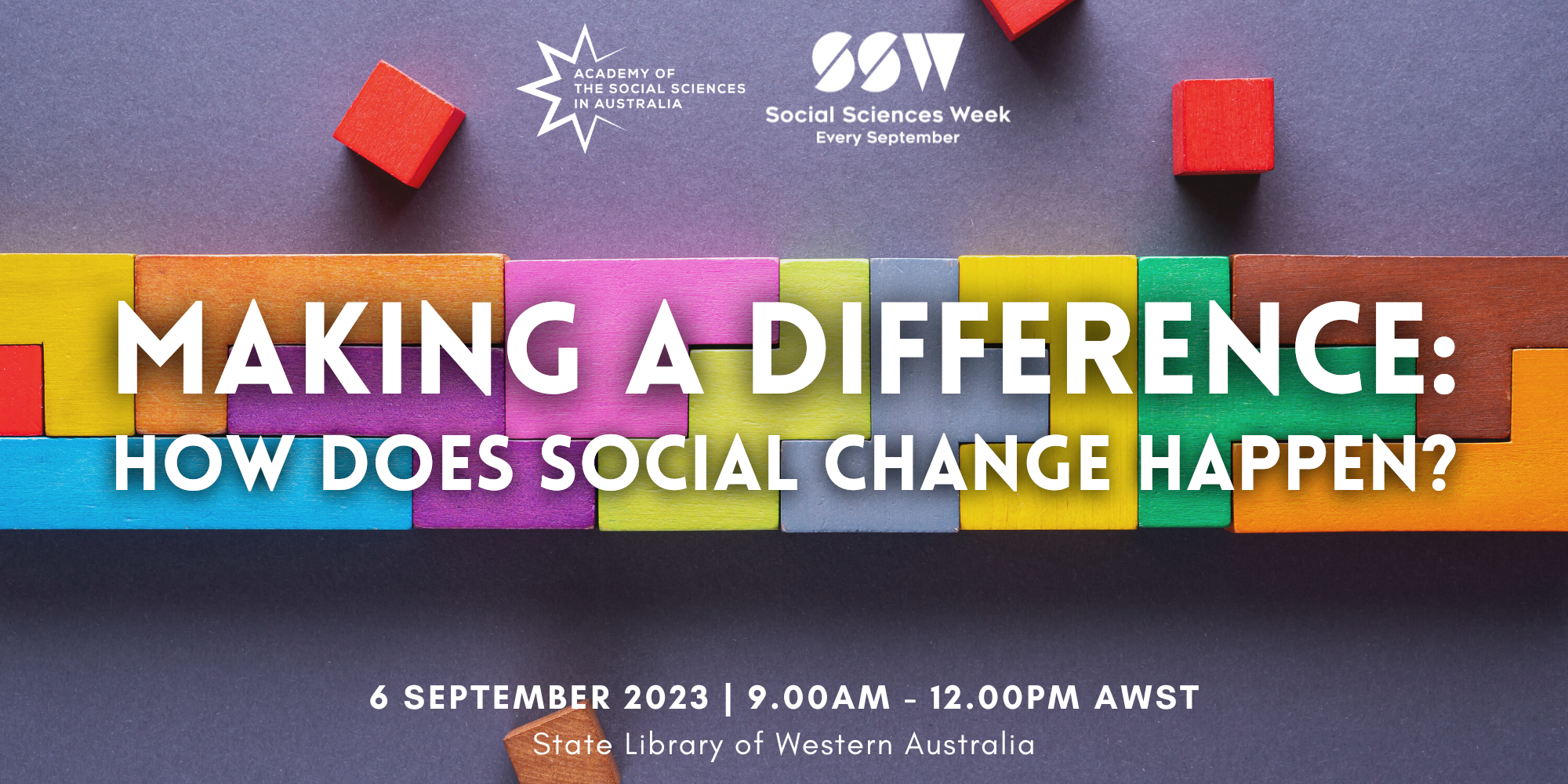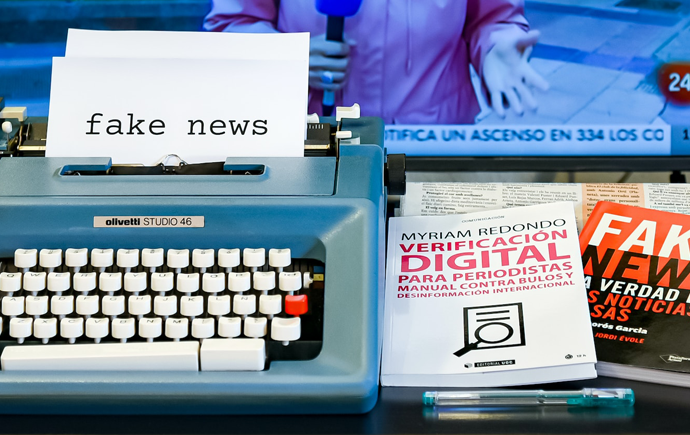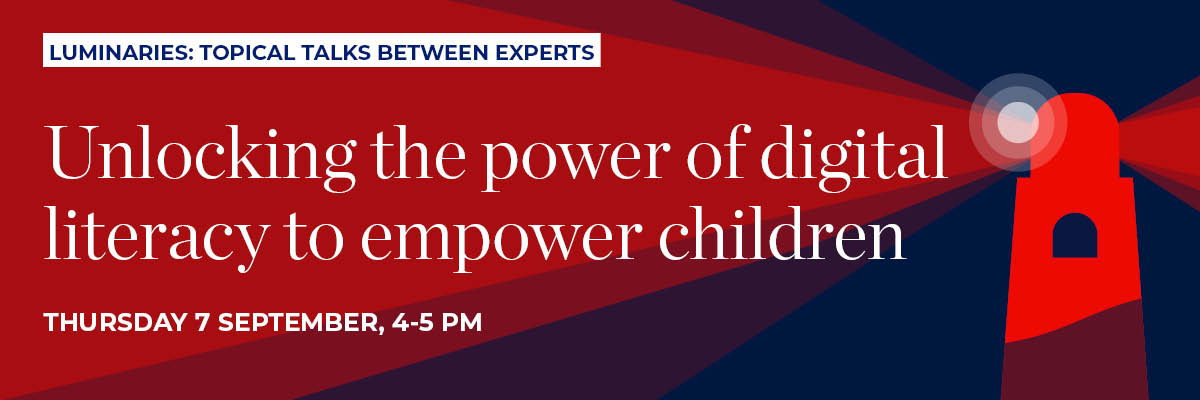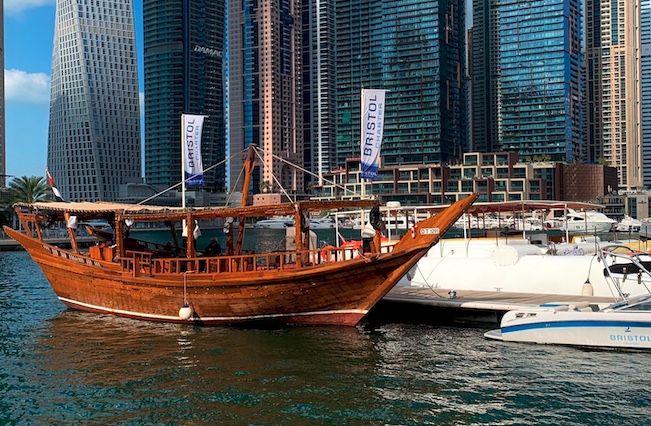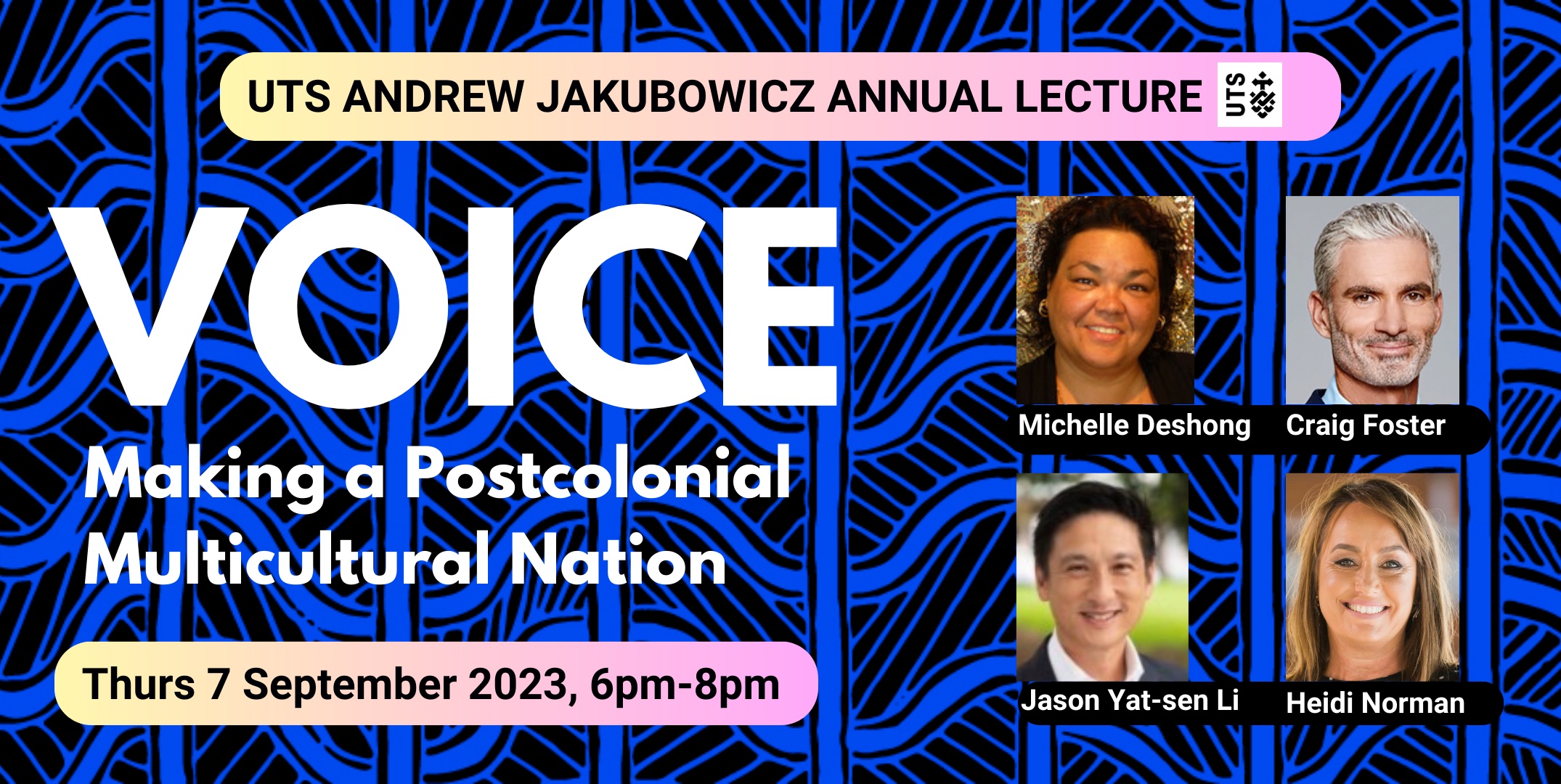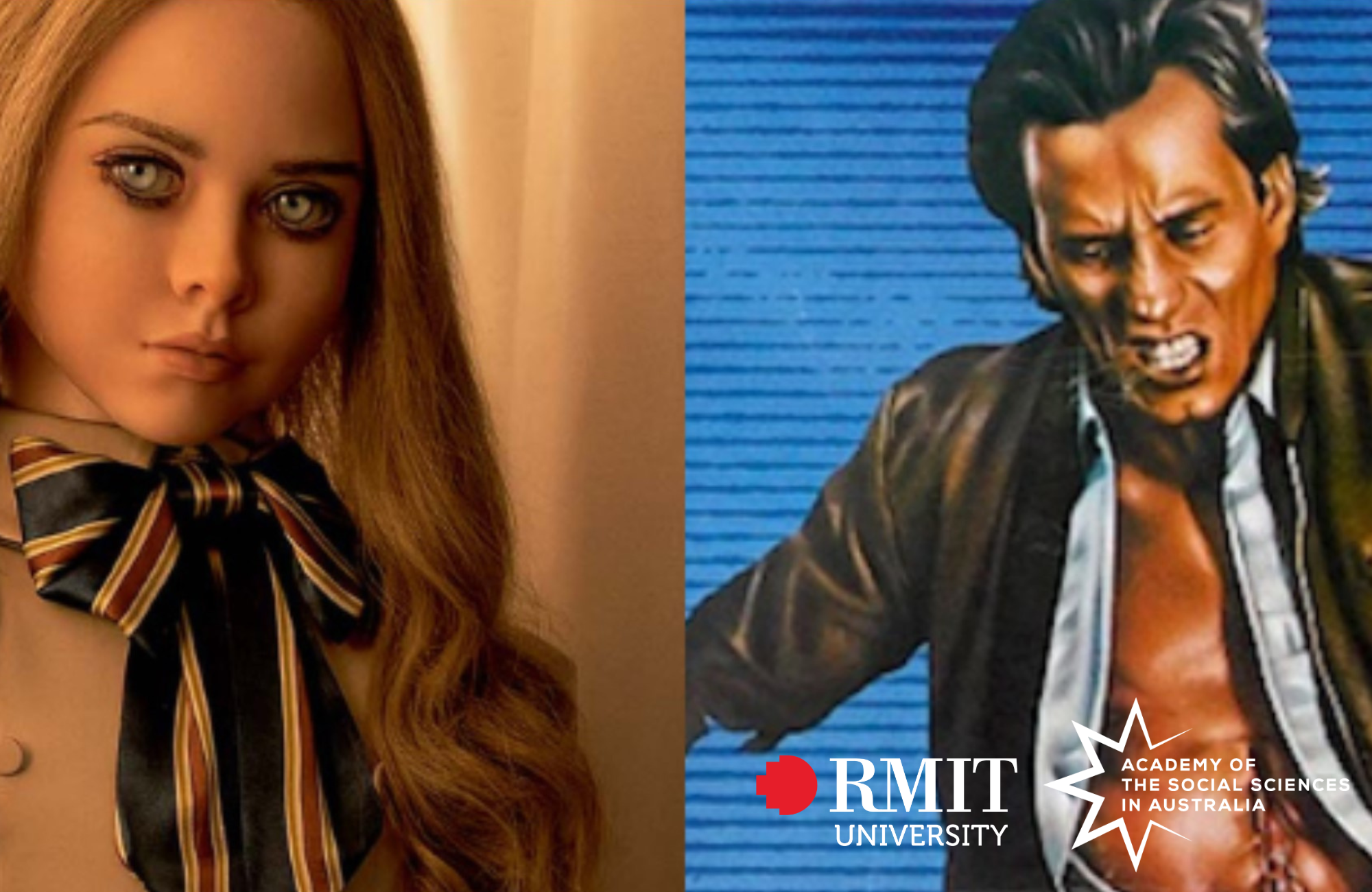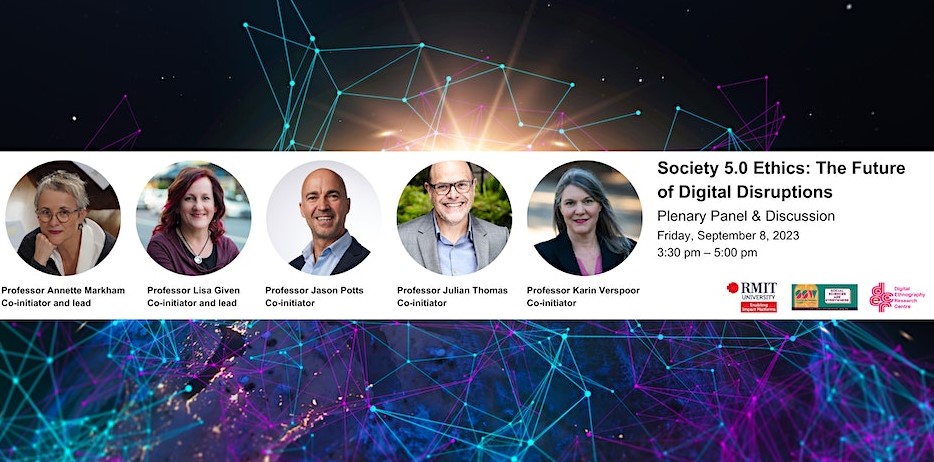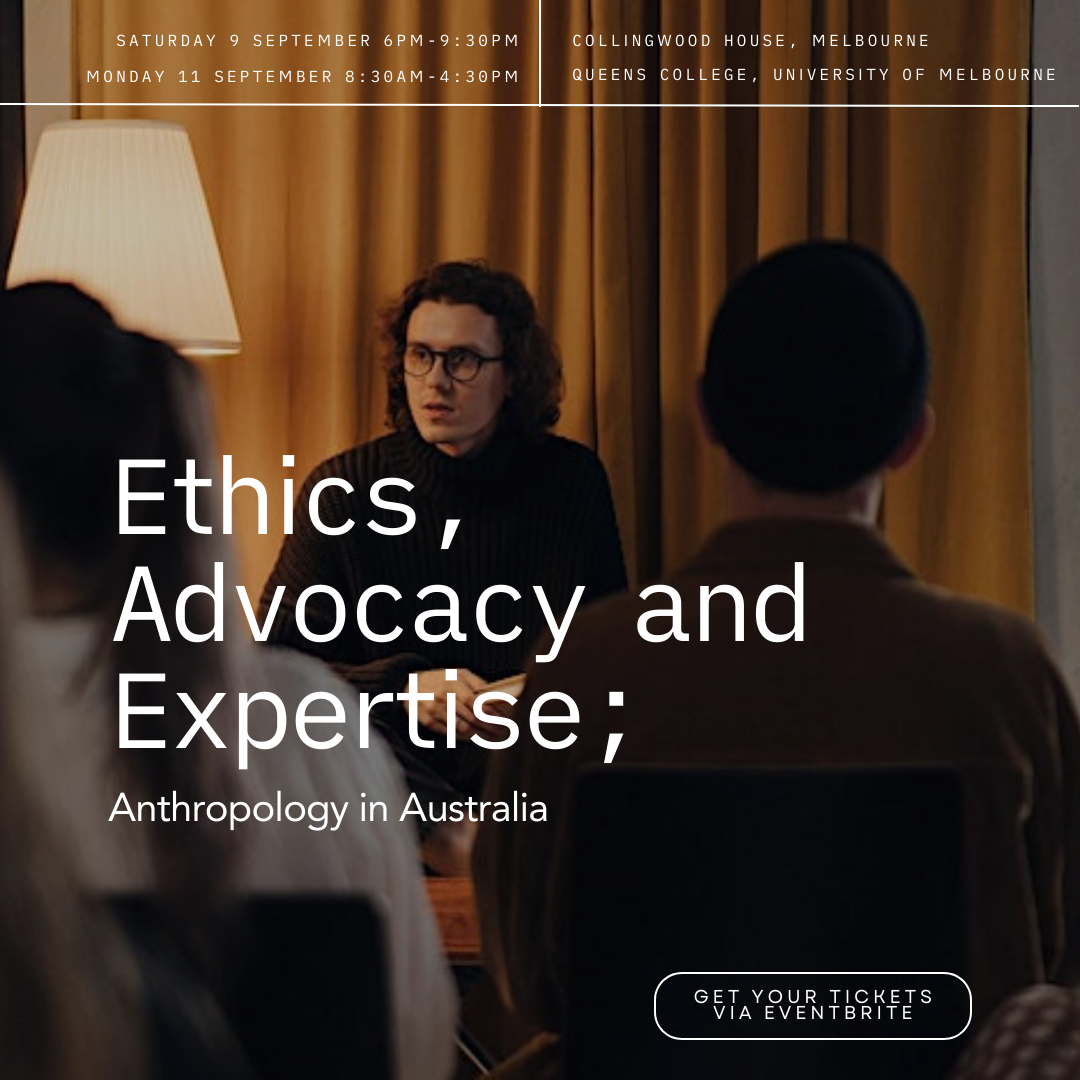Events
- Events
- Panel Discussion
Peer review in the Social Sciences
Australian National University, RSSS auditorium 146 Ellery Crescent, ActonSupporting Refugee Students in Tertiary Education: A Conversation
Linkway Meeting Room, Level 4, John Medley Building University of Melbourne, ParkvilleUniting for a Greener Game: A Dynamic Q&A Workshop
RMIT Storey Hall 342 Swanston Street Building 16, level 5, MelbourneAddressing Australia’s 21st Century Global Challenges
Seminar Rooms 2 & 3, Monash Conference Centre, 30 Collins Street, Melbourne VIC 3000 Seminar Rooms 2 & 3, Monash Conference Centre, 30 Collins Street, Melbourne VIC 3000Starting early for children in need – where we start matters
The Braggs, G60 Bragg Lecture Theatre, Victoria Drive, University of AdelaideDisinformation in the City
Seminar Rooms 2 & 3, Monash Conference Centre, 30 Collins Street, Melbourne VIC 3000 Seminar Rooms 2 & 3, Monash Conference Centre, 30 Collins Street, Melbourne VIC 3000MESF & AIIA Panel Discussion: Australia’s Relations with the Middle East
Deakin Downtown (727 Collins Street, Docklands) and via Zoom. 727 Collins Street, Docklands, MelbourneLost in diagnosis: Navigating the communication challenge of misdiagnosis in women
The Street The Street Theatre, 15 Childers Street, CanberraVoice: Making a Postcolonial Multicultural Nation
UTS Green Theatre, Vicki Sara Building (Blg 7) UTS Building 7, level 2, room 025, 67 Thomas Street, BroadwaySociety 5.0 Ethics: The Future of Digital Disruptions
Council Chambers - Building 1 (Francis Ormond Building) - RMIT University 124 La Trobe Street Melbourne, VIC 3000 RMIT University 124 La Trobe Street, MelbourneEthics, Advocacy and Expertise; Anthropology in Australia
Collingwood House 101 Johnson Street, Collingwood- No events scheduled for 9 September 2023.
Week of Events
Understanding LGBTQA+SB suicidal behaviour and improving support
Understanding LGBTQA+SB suicidal behaviour and improving support
Understanding lived experience is a national mental health priority and has a vital role in shaping the policy and practices aimed at improving social support for suicidal distress in LGBTIQA+ communities. This panel brings together expert social science academics, LGBTQIA+ community sector support services and advocates to present research about the lived experience of suicidal behaviour within culturally diverse LGBTIQA+ communities, including First Nations LGBTIQA+SB people and LGBTIQA+POC. The panel will detail key insights from interviews with 20 lived experience participants, recruited from across Australia including 3 First Nations LGBTQA+SB people, 7 LGBTQA+ POC and 10 LGBTQA+ people. Themes discussed focus on the importance of intersectionality (the overlapping impact of multiple forms of discrimination) when understanding LGBTQA+SB lives, experiences of suicidal distress and the formal and informal support. Recommendations for policy and practice will be outlined, including the need to improve knowledge, awareness, and access to support services that are inclusive of intersectional experiences. We will also outline how, through a process of participatory co-design, this lived experience research has been translated into an online training module that is available for delivery from Switchboard, Victoria. This research was funded by Suicide Prevention Australia. Panelists: Katherine Johnson (RMIT), Vanessa Lee-Ah Mat […]
Transformative Justice and Peace in Africa
Transformative Justice and Peace in Africa
Join us for one or both of two online seminars exploring transformative justice and peace on the African continent. Session 1: Transformative Justice and the African Union: Unsettling the Dominant Discourse and Practice of Transitional Justice 4 September, 1-2 pm Online only Speaker: Dr Wendy Lambourne, Senior Lecturer in Peace and Conflict Studies, Discipline of Sociology and Criminology, University of Sydney Transitional justice as a field of practice has become standardised around four ‘essential and complementary’ key pillars derived from the Joinet principles against impunity: criminal justice, truth-seeking, reparations and guarantees of non-recurrence/institutional reform. These four key pillars were defined by the United Nations in 2010 as central to supporting transitional justice in countries seeking to build peace at the same time as addressing the legacies of mass human rights violations. I have argued that the imposition of these four pillars as the only model of transitional justice not only undermines the principles of local ownership and contextualisation, it is also incompatible with a process of transformative justice and the ultimate goals of peace and reconciliation. The African Union has subsequently developed a Transitional Justice Policy and Framework for the region that takes a broader, more flexible and localised perspective which is […]
Advancing Social Impact with Digital Technology
Advancing Social Impact with Digital Technology
Join us for afternoon tea at RMIT’s Garden Building (City Campus) to discover more about the role digital technology is playing to advance social impact on a global scale. Explore the applications of digital tech for social good Understand how industry is using digital tech to combat modern slavery Celebrate the launch of our new online short course designed to harness digital tech to drive social impact This event is open to businesses, government, academics and the community as part of the Digital Innovation Futures Festival. Event details: RMIT's Business and Human Rights Centre, Associate Professor Shelley Marshall will take us on an exploration of the applications of digital technology for social good, and how we can play in their acceleration and spread. Get involved in an interactive panel discussion with Andre Clarke from AskYourTeam and Greta Korthaus from the United Nations Global Compact to understand how industry is combatting modern slavery with digital technologies. Official launch of RMIT Digital3’s online short course Advancing Social Impact with Digital Technologies produced with RMIT's Business and Human Rights Centre. This short six week course guides participants through the United Nations Sustainable Development Goals (SDGs) which is a blueprint for how businesses can […]
Peer review in the Social Sciences
Peer review in the Social Sciences
Peer review is considered a hallmark of quality in academic research. But peer-review is a highly diverse process that is sometimes contradictory or unclear. Join our panel for this timely discussion as part of Social Sciences Week. This session explores what ‘quality’ in peer review means and what kinds of peer-review processes are emerging in the social sciences and humanities. Panellists will briefly offer their views and experience before a Q&A session with the audience. Dr Rachael Brown Rachael Brown is Lecturer in the School of Philosophy and Director of the Centre for Philosophy of the Sciences at the Australian National University, primarily at the intersection of the philosophy of biology, philosophy of cognitive science, and philosophy of science. Rachael is particularly interested in the evolution of cognition and behaviour, the relationship between Evo-devo and the Neo-Darwinian Synthesis, model-based reasoning in biology and philosophy, and methodological issues in the study of animal behaviour and cognition. Dr Jason Chin Jason Chin is senior lecturer at the College of Law at the Australian National University, the former (2020-21) President of the Association for Interdisciplinary Meta-research and Open Science (AIMOS), and the inaugural registered reports editor for Forensic Science International: Synergy. He is […]
Transformative Justice and Peace in Africa
Transformative Justice and Peace in Africa
Join us for one or both of two online seminars exploring transformative justice and peace on the African continent. Session 1: Transformative Justice and the African Union: Unsettling the Dominant Discourse and Practice of Transitional Justice 4 September, 1-2 pm Online only Speaker: Dr Wendy Lambourne, Senior Lecturer in Peace and Conflict Studies, Discipline of Sociology and Criminology, University of Sydney Transitional justice as a field of practice has become standardised around four ‘essential and complementary’ key pillars derived from the Joinet principles against impunity: criminal justice, truth-seeking, reparations and guarantees of non-recurrence/institutional reform. These four key pillars were defined by the United Nations in 2010 as central to supporting transitional justice in countries seeking to build peace at the same time as addressing the legacies of mass human rights violations. I have argued that the imposition of these four pillars as the only model of transitional justice not only undermines the principles of local ownership and contextualisation, it is also incompatible with a process of transformative justice and the ultimate goals of peace and reconciliation. The African Union has subsequently developed a Transitional Justice Policy and Framework for the region that takes a broader, more flexible and localised perspective which is […]
Cancelled?: Taking a Closer Look at ‘Cancel Culture’
Cancelled?: Taking a Closer Look at ‘Cancel Culture’
Cancel culture is a poorly defined, politicised and polarising socio-cultural phenomenon. At best, cancel culture is hailed as an empowering means for marginalised communities to hold high profile figures accountable for offensive actions. At worst, it is seen as a problematic and uncontrollable trend that demonises individuals under the guise of moral virtue, and stifles public debate. Digital spaces are also shaping the form, content and influence of cancel culture, unsettling previous hierarchies by allowing anyone with a social media account to ‘speak truth to power’ and call out views or conduct deemed problematic. This session will bring together scholars and activists working at the intersections of digital media practices, social justice issues and political activism to consider the phenomenon of ‘cancel culture’ and the constraints, problems and benefits it generates for digital subjects and scholars.
Supporting Refugee Students in Tertiary Education: A Conversation
Supporting Refugee Students in Tertiary Education: A Conversation
A conversation about gaps of inclusion in universities, and blocks and pathways to tertiary education for students with a refugee background This panel will consider gaps of inclusion in universities and blocks and pathways to tertiary education for current and prospective students with a refugee background. This event also features musician Sayeed Zaman Ibrahim, who will play the Hazaragi Dambora. Panel discussants include: Dr Karen Dunwoodie (Deakin University), Director at Deakin CREATE. She has worked, volunteered, researched and advocated in the refugee sector in Australia for the past 12 years and her research interests include progressing the field of refugee resettlement, principally focussing on career development and the impact access to tertiary education and training may have on the lives on refugees and people seeking asylum. Karen’s research interests extend to investigating why some employers may or may not be actively including people with a refugee background, as part of their employment diversity and inclusion strategies. Ms Lana Formoso, Deputy Mayor of Dandenong City Council and a Dandenong High School teacher. She is a dedicated community leader for her community specially newly arrived migrants and refugees in Southeast Melbourne. She is an SES volunteer and ambassador for MyRoom Children’s Cancer […]
Uniting for a Greener Game: A Dynamic Q&A Workshop
Uniting for a Greener Game: A Dynamic Q&A Workshop
What is the key to greener sports that isn't green, or sport washed actions? Let's re-imagine how sport can truly play a role towards a better sustainable future. Through a captivating blend of a panel Q&A, thought-provoking discussions, and interactive activities we will explore the power of sport to action climate change and help the land we live on flourish. Sport organisations confront growing challenges and threats to the natural environment, that pose as a risk to how we play sport today. Responses require changes or modifications to organisational DNA and how sport operates. Some sports organizations are responding to this call for action by increasing their climate adaptability, action and implementing environmental sustainability practices. The central question is how does the sport organisation improve its relationship with the natural environment? In this live exploration, a mixed panel of industry and academic keynotes will share their insight and journey of environmental sustainability and will analyse foundations and strategies of organisational change —including some of the biggest, most difficult and pressing roadblocks and challenges. Following our speakers, we invite you to join us in an engaging discussion about your own journeys, contribute your insights, share your experiences, and be part of […]
Addressing Australia’s 21st Century Global Challenges
Addressing Australia’s 21st Century Global Challenges
As the 21st century proceeds apace, Australia faces new and old challenges, both domestically and internationally. Managing complex governance issues, preventing democratic fracture, balancing an ever-shifting geo-political strategic order, addressing the recognition and identity demands of marginalised groups, and responding to crises such as pandemics and climate change are among the most urgent of them. These challenges are, of course, not exclusive to Australia, being symptomatic instead of a rapidly changing global order. However, their manifestation, and any responses developed to address them, are inevitably shaped by the country’s distinctive history, culture, geography, location, and size. The papers presented in this panel will showcase research that seeks to address some of these challenges. The panel features a selection of researchers who have contributed to a forthcoming book under contract with Routledge that is co-edited by Dr Matteo Bonotti and Dr Narelle Miragliotta from Monash University.
Starting early for children in need – where we start matters
Starting early for children in need – where we start matters
This forum is held in conjunction with our partner organisation the Department for Child Protection. The message this year for National Child Protection Week (3-9 September) is that ‘Every child in every community needs a fair go’ and will be complemented with the theme ‘Where we start matters’. Our expert panel of speakers will present around their work in this area on a wide range of topics from babies, children, mothers and support programs. OUR SPEAKERS Dr Prue McEvoy, Child and Adolescent Psychiatrist: Lead Psychiatric Director, Department for Child Protection on Child Maltreatment: the obstacle to children getting a fair go Brad Morgan, Director, Emerging Minds on Early Support, early in life: Mental health as a foundation for lifelong development Dr Alisa Willis, Head of Impact, Growth and Innovation, Junction Australia on Growing Together Gemma Crisp, Lead Clinician – Speech Pathologist, Therapeutic Carer Support Team. Department for Child Protection on Identifying children in care who are at risk of disability or developmental delay - living in rural and remote South Australia Dr Carmela Bastian, Senior Lecturer, College of Education, Psychology and Social Work, Flinders University on Safety and wellbeing of children in the context of women’s shelters A/Professor Yvonne Clark, Senior Research […]
Making a Difference: How Does Social Change Happen?
Making a Difference: How Does Social Change Happen?
Policymakers confront growing challenges in areas as diverse—and often interrelated—as climate change, social inequality, artificial intelligence, work, migration, declining biodiversity, and new threats to public health. Responses require changes or modifications to deeply entrenched social and economic structures. Consequently, reform attempts often generate conflict and resistance from those with a real or perceived interest in those structures. How can such conflict be managed to deliver urgently needed reforms? This question is central to social scientists, whose work is vital to both the implementation of effective policy, and to understanding the societal implications of policy choices. A panel of six leading social scientists will analyse foundations and strategies of policy change in their areas of expertise—including some of the biggest, most difficult and pressing global and national challenges. This panel will highlight the breadth, diversity, and interrelationships within and between, social scientific and other disciplines, and their central importance to addressing these challenges. Each panellist will address three thematic questions: What is the central conflict or problem inherent to their research topic? How can this be managed or overcome? What skills or insights enable social science to make a difference to public policy—and debate thereof—in their research field? Panel presentations will […]
You, Me, and the Pale Blue Dot: Climate Politics in Australia and at the Global Level
You, Me, and the Pale Blue Dot: Climate Politics in Australia and at the Global Level
Have you ever wondered what is the real connection between you – an individual – and global climate change? You are not alone. As students, educators, office managers, researchers, lab specialists, and other workers, it is common to be confused about often complicated climate-related policy language, science, geo-engineering, and various movements, even when we are committed to the green lifestyle and environmental values. If you often wonder what the connection is between the individual and global and how can we interpret and understand often convoluted climate-related language, science, and policy, join us for a roundtable on September 6th. We will discuss climate policymaking and politics in Australia and beyond and, more importantly, the panelists will share their personal experiences and reflections on the role of ordinary individuals and the global picture of climate change. In the indefinite universe, the “pale blue dot” might seem to be of no particular interest, but as Carl Sagan said: “for us, it is different; It is us. It is home.” Date: Wednesday 6 September Time: 11am-12pm Format: Hybrid Venue: Law Theatre G02 Panelists: Dr Dhanasree Jayaram, Manipal Department of Geopolitics and International Relations Saniya Karimova, UNSW Alumna, Master of Development Studies Dr Deborah Barros […]
Developing research partnerships with schools
Developing research partnerships with schools
A workshop for school staff and researchers, presented by The Australian Sociological Association (Sociology of Education Thematic Group) What kinds of social research is of benefit to schools? How can schools make room for research? How can researchers co-design projects with schools to achieve common goals? How can researchers manage institutional barriers, e.g. onerous approvals processes, financial constraints, and time constraints? Social scientists working on education have always worked productively with schools. However, that is becoming increasingly difficult because of the pressures facing both schools and the research sector. The aim of this workshop is to bring together researchers and school staff to share ideas and experiences, in order to increase understanding and create possibilities for new ways of working together. Participating researchers work on issues including: Educational inequality Cultural diversity and schooling Impacts of Covid on schooling Selective schools and educational segregation Transitions to post-school life Our panel includes: Cathy Wilton, Principal, Yennora Public School Sarah Loch, Research Director, Pymble Ladies College Kimberley Pressick-Kilborn, Research Director, Trinity Grammar College Eliza Buckley, Youth and Community Services Manager, 3 Bridges Community Centre Dr Quentin Maire, University of Melbourne
Can AI do this job? Hear from our industry experts!
Can AI do this job? Hear from our industry experts!
Can Artificial Intelligence (AI) write a lesson plan for a new teacher? What about a script for a hit TV show? Can we use it for images, design, and more? This Swinburne-led panel brings together three experts from education, screenwriting, and design to take a closer look at AI-generated outputs. Join us for an online event where we analyse and discuss AI and its impact on our work in education, writing, and design. Mark your calendars for Wednesday 6 September 2023 at 3pm (Australian Eastern Standard Time) and don't miss this opportunity to gain valuable knowledge and engage in thought-provoking discussions. Discover how AI is impacting how we do our jobs. Our expert panellists will share their insights, experiences, and analysis of what AI can produce in their field. If you're curious about AI and its ability (and limitations) to work with us and for us, this event is for you! Our expert panel: Associate Professor Damien Lyons Damien Lyons has teaching experience from Foundation through to Year Six, most recently as a Teaching and Learning Coach. He has held a range of leadership positions within primary schools, provided professional development to teachers within Australia and internationally, and contributed to policy within […]
Can AI do this job? Hear from our industry experts!
Can AI do this job? Hear from our industry experts!
Can Artificial Intelligence (AI) write a lesson plan for a new teacher? What about a script for a hit TV show? Can we use it for images, design, and more? This Swinburne-led panel brings together three experts from education, screenwriting, and design to take a closer look at AI-generated outputs. Join us for an online event where we analyse and discuss AI and its impact on our work in education, writing, and design. Mark your calendars for Wednesday 6 September 2023 at 3pm (Australian Eastern Standard Time) and don't miss this opportunity to gain valuable knowledge and engage in thought-provoking discussions. Discover how AI is impacting how we do our jobs. Our expert panellists will share their insights, experiences, and analysis of what AI can produce in their field. If you're curious about AI and its ability (and limitations) to work with us and for us, this event is for you! Our expert panel: Associate Professor Damien Lyons Damien Lyons has teaching experience from Foundation through to Year Six, most recently as a Teaching and Learning Coach. He has held a range of leadership positions within primary schools, provided professional development to teachers within Australia and internationally, and contributed to policy within […]
Disinformation in the City
Disinformation in the City
Disinformation is nothing new in cities globally, with a long history of concerted fabrications that are deliberately misleading from anti-Semitic campaigns to 9/11 conspiracies. During the past decade disinformation has exploded in both prevalence and impact. In the city realm, those responsible for urban governance – both elected representatives and city officials – are increasingly faced with the consequences of concerted disinformation campaigns. These erode city capacity to address collective challenges including climate change, public health, and social cohesion. This panel will present differing perspectives and experiences of disinformation as a far-reaching issue facing cities across Australia, and across the globe.
Co-design or consultation? Exploring barriers and enablers to true collaboration in the disability sector
Co-design or consultation? Exploring barriers and enablers to true collaboration in the disability sector
Co-design and co-production are commonly used terms in the social sciences. The concept of involving people with lived experience as equal collaborators in identifying issues that impact on their lives and designing solutions is a powerful one. However, for some people with lived experience of disability, there is a sense that consultation is sometimes mislabelled as co-design. This panel discussion will explore perceptions of what true co-design is, and examine the enablers and barriers to co-design in the disability sector. Our panel will include Zane McKenzie, Client Partnership Lead and Disability Workstream Lead from Scope Aust. Ltd., Dr Paul Ramcharan, senior researcher in disability inclusion from the University of Melbourne School of Social and Political Sciences and Rusty Benson, a Social Design specialist. The panel discussion will be facilitated by Professor Keith McVilly, Professor of Disability and Inclusion at the University of Melbourne.
Voice to Parliament
Voice to Parliament
The movement for constitutional recognition of Aboriginal and Torres Strait Islanders has grown larger since the National First Nations Constitutional Convention at Uluru in 2017, where Indigenous delegates drafted and signed the ‘Uluru Statement From the Heart’. The Statement called for Voice, Treaty and Truth, which was endorsed by the Referendum Council. Australians will vote at a referendum this year to decide whether to give Aboriginal and Torres Strait Islander peoples a Voice to Parliament. In Australia’s history, 44 changes to the Constitution have been proposed, with 8 changes being agreed to by the public. In 1967, the question to change the Constitution to count Indigenous people in the national population and to allow the Commonwealth to make laws for them had bipartisan support and was met with a 90.77% yes vote. But today, parties are split on the issue of voice and are running opposing campaigns. If the referendum is successful, a new constitutionally enshrined body will be established to represent Indigenous Australians’ views on policy and legislation at the federal level. This webinar, hosted by the Australian Political Studies Association, will feature three prominent scholars to help us understand the implications this referendum has for democracy, governance, and Indigenous-settler relations […]
UOW Luminaries: Unlocking the power of digital literacy to empower children
UOW Luminaries: Unlocking the power of digital literacy to empower children
Digital literacy for children is complex; even for our youngest children. The ability to use a range of digital technologies, to critically engage with those technologies, and the texts they offer is important. But so too is developing children’s capacities to react and respond to the digital culture within which they operate. Consider the scenarios; While playing an online game, a child is invited to network with an unfamiliar person. While researching for a school project, a child comes across inaccurate information. A photo is shared via social media; the child has not consented for it to be shared and becomes annoyed when they see it. Drawing from interdisciplinary perspectives the panel will consider the scenarios as they work to embrace the fluidity of the digital age as children use technology in ways that are developmentally and contextually appropriate, literacy rich, and safe. When: Thursday, 7 September, 4-5 pm AEST Where: Online via Zoom - Zoom link to join the webinar will be emailed after registration Panellists: Professor Lisa Kervin is Professor of Education in the Faculty of the Arts, Social Sciences and Humanities at the University of Wollongong (UOW), where she is also Director of Early Start Research. Associate Professor Jessica Mantei is Deputy Head […]
MESF & AIIA Panel Discussion: Australia’s Relations with the Middle East
MESF & AIIA Panel Discussion: Australia’s Relations with the Middle East
Please join us on Thursday 7 September, as part of Social Sciences Week, for a co-hosted MESF and AIIA panel discussion on Australia’s Relations with the Middle East. Social Sciences Week is an annual event that celebrates and showcases the diverse range of social sciences disciplines and research in Australia. The social sciences are key to understanding humanity, society and the institutions which govern our daily lives. Middle East Studies Forum (MESF) at Alfred Deakin Institute for Citizenship and Globalisation (ADI) and the Australian Institute of International Affairs -Vic (AIIA) are delighted to host this discussion panel. ABSTRACT Australia has viewed the Middle East as a region of great cultural, economic, and geopolitical importance. With the withdrawal of troops from Afghanistan in 2021, Australia concluded two decades of military operations in the Middle East. Yet the region remains important for global peace and security. Concerted efforts by China and Russia to enhance their presence and influence in the Middle East only points to the continued geo-political importance of the region in years to come. Furthermore, increased migration from the region has enriched the social and cultural tapestry of Australian society. Arabic is the third most spoken language in Australia. Trade with the region, particularly with the Gulf […]
Responding to crisis and marginalisation: young people, hope, resistance and agency
Responding to crisis and marginalisation: young people, hope, resistance and agency
Conversations around young people and crisis tend to focus on their vulnerability to social crises, or their culpability for them. For example, young people experience hardships like escalating mental health problems, housing instability, and job precarity. At the same time, they’re deemed responsible for ‘anti-social’ problems and crises like street crime, substance use, and discipline issues in schools. But young people don’t all respond the same way to crisis, and often what’s left out of these conversations are their practices of hope and resistance. How do young people respond to crisis, and what can their response tell us about resilience and agency? In this symposium for Social Science Week 2023, four of UNSW’s best early career academics will explore how young people narrate and practice hope, resistance and agency in differing conditions of crisis and marginalisation Chair: A/Prof Joanne Bryant, School of Social Sciences UNSW Speakers: Dr Sujith Kumar Prankumar, The Kirby Institute UNSW ‘Citizenship, belonging and flourishing’ Dr Ash Watson, Centre for Social Research in Health UNSW ‘Youth resistance in punk, rave and queer music zines’ Dr Naama Carlin, School of Social Sciences UNSW TBA Dr Gabe Caluzzi, UNSW and La Trobe University ‘Hope for young people in residential […]
Lost in diagnosis: Navigating the communication challenge of misdiagnosis in women
Lost in diagnosis: Navigating the communication challenge of misdiagnosis in women
Each year in Australia, approximately 140,000 diagnostic errors occur, resulting in estimated 21,000 serious injuries and between 2,000 to 4,000 deaths. Communication is a contributing factor in up to 80% of diagnostic errors. Misdiagnosis is potentially worse for women, who often feel unheard or dismissed in the clinical setting. Lost in Diagnosis brings together patients, doctors, and health communication experts for an immersive and interactive discussion on the challenges women face when seeking diagnosis and the importance of communication in the diagnostic encounter. Combining personal experience with medical insight and health advocacy, our diverse panel will delve into these diagnostic difficulties, including dismissed pelvic pain and undetected heart disease. Panel discussion Moderated by Dr Amy Coopes, Canberra-based doctor, writer and editor at Croakey Health Media Darlene Cox, Executive Director of Health Care Consumers Association Inc. Jen Morris, Patient Safety Advocate Dr Marisa Magiros, General Practitioner and medical educator, Royal Australian College of General Practitioners Dr Arnagretta Hunter, cardiologist and Human Futures Fellow, College of Health and Medicine, Australian National University Dr Mary Dahm, ARC DECRA Fellow and Senior Research Fellow at the Institute for Communication in Health Care (ICH) at the Australian National University Wellspring: Enquiry and Exchange Bringing campus to […]
Voice: Making a Postcolonial Multicultural Nation
Voice: Making a Postcolonial Multicultural Nation
What might a postcolonial nation look like in Australia, and what is the place of the Voice Referendum in that process? What is the role of multicultural communities in the Referendum? What is at stake for multicultural communities in building a postcolonial future free of racism? Just over half of Australians were born overseas or have one migrant parent, and nearly a quarter speak a language other than English at home. Multicultural communities will be crucial to the Referendum. This event takes up the question of both diverse communities and support for the Voice Referendum, as well as the longer-term efforts around treaty and reconciliation. Light snacks from 6pm, for a 6.30pm start. This is the 2023 UTS Andrew Jakubowicz Annual Lecture SPEAKERS Professor Heidi Norman Associate Dean Indigenous, Faculty of Arts and Social Sciences, University of Technology Sydney. Heidi is a scholar of Aboriginal politics and history, and Gomeroi descendant. Michelle Deshong Managing Director, Deshong Consulting. Michelle has worked in fields of gender equity, leadership, governance and political science. She is Co-Chair of Supply Nation and member of the AIATSIS Council. Michelle draws connection to the Kuku Yulanji Nation. Craig Foster AM Member of the Australian Multicultural Council and […]
Social Sciences After Dark: Disturbing Technology
Social Sciences After Dark: Disturbing Technology
RMIT Culture co-presents Social Sciences After Dark: Disturbing Technology, which explores humanity’s deepest anxieties through a horror double bill. This event is the first in the Social Sciences After Dark series, a celebration of the power of film as a window on human society. First, a story by RMIT alum James Wan: in M3GAN (2022) we meet a grief-stricken girl and the remarkably disturbing doll who becomes her friend. Next, we mark the 40th anniversary of David Cronenberg's classic VIDEODROME (1983), where the disturbing technology is the television signal. Engage with a panel of diverse social scientists between films for a rousing discussion about our deepest fears of technological change, and the implications for society. Social Sciences After Dark is a highlight of RMIT’s events marking national Social Sciences Week, convened by the Academy of Social Sciences in Australia. It is a RMIT Engaging for Impact event and is supported by the RMIT Enabling Impact Platforms, College of Design and Social Context, College of Business and Law, School of Global, Urban and Social Studies, and RMIT Culture. Moderator: Dr Jessica Balanzategui (Media and Communication, RMIT University) Panellists: Assoc/Prof Jordy Kaufman (Psychology, Swinburne University of Technology) Dr Alexia Kannas (Media […]
Class Inequality in Australia, in Academia and Beyond
Class Inequality in Australia, in Academia and Beyond
Part one (35 mins talk; 15 mins Q&A): Presentation: Class in Australia, by Associate Professor Steven Threadgold, University of Newcastle and Associate Professor Jessica Gerrard, University of Melbourne. Part two (approx 30 mins): Panel Q&A: Intersectional perspectives on being (working) classed and in the Australian Academy Panel members: Associate Professor Emma Gavin, Faculty of Education, Monash University Dr Shannon Kilmartin-Lynch, School of Engineering, RMIT University Dr Sherene Idriss, Alfred Deakin Institute, Deakin University Dr Sarah Attfield, School of Communication, University of Technology Sydney Dr Gene Flenady, Department of Philosophy, Monash University
Society 5.0 Ethics: The Future of Digital Disruptions
Society 5.0 Ethics: The Future of Digital Disruptions
In this interactive plenary panel, internationally-recognised RMIT experts present a set of provocations around near-future challenges and opportunities based on the converging impacts of continuous digital disruptions. What should societies look like in 2050? How can we get ahead of the curve when it comes to ethical problems around new tech? How can we be sure emerging technologies serve us as humans rather than the other way around? What focus is needed to centralize social concerns in the push for continuous technological development? Join us for this exciting and provocative discussion to launch RMIT's Society 5.0 Ethics Initiative, in conjunction with Social Science Week 2023. This is an RMIT Engaging for Impact event and is supported by the RMIT Enabling Impact Platforms, College of Design and Social Context, College of Business and Law, School of Global, Urban and Social Studies. Speakers Professor Annette Markham Co-initiator and lead RMIT Professor, Global digital culture and ethics expert Professor Lisa Given Co-initiator and lead RMIT Professor, Global information science and ethics expert Professor Jason Potts Co-initiator RMIT Professor, blockchain and web3 futures expert Professor Julian Thomas Co-initiator RMIT Professor, AI and decision-making expert Professor Karin Verspoor Co-initiator RMIT Professor, Machine learning in health […]
Ethics, Advocacy and Expertise; Anthropology in Australia
Ethics, Advocacy and Expertise; Anthropology in Australia
With a passion to work more collaboratively, Anthroprospective and the Centre for Native Title Anthropology are teaming up to host two engaging events this September during Social Science Week in Melbourne as a way of encouraging social science academics to engage in more authentic dialogue with the broader public. In doing so, we hope that we can create new avenues to promote the applicability and significance of social science to more mainstream audiences. The first event will be held on Saturday September the 9th from 6pm to 9:30pm in Collingwood at 'Collingwood House'. This social networking evening will comprise of two keynote speeches and an engaging Q&A panel centralised around the theme of 'Ethics, Advocacy and Expertise; Anthropology in Australia'. For further information and to book your tickets, please see: https://www.eventbrite.com.au/e/ethics-advocacy-and-expertise-anthropology-in-australia-tickets-645809582847 The second event will be held on Monday September the 11th from 8:30am to 4:30pm at Queens College, The University of Melbourne. In keeping with the theme of 'Ethics, Advocacy and Expertise; Anthropology in Australia', this all-day conference workshop which will provide attendees the opportunity to continue discussions from the previous Saturday night and to delve into a number of stimulating topics from a range of anthropologists. For further information and to register your attendance at this free offering, please see: https://www.eventbrite.com.au/e/ethics-expertise-and-advocacy-one-day-cnta-workshop-tickets-674978086627?aff=erelexpmlt We […]

